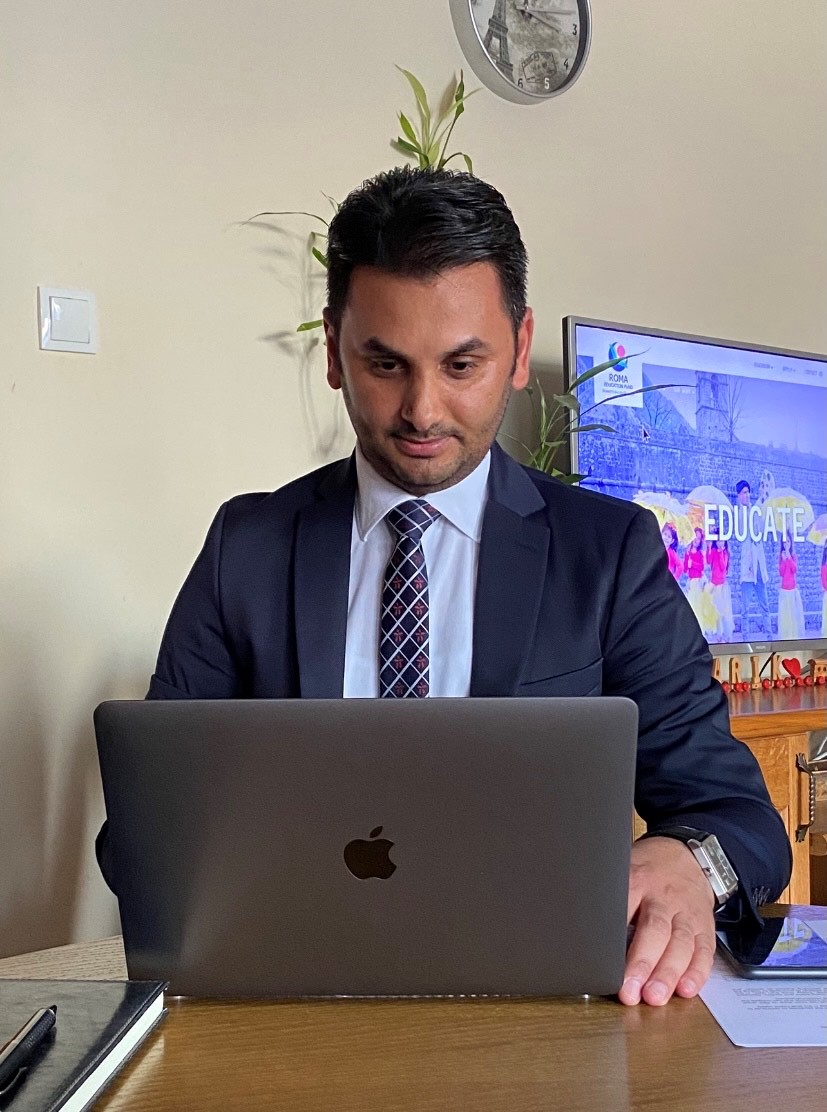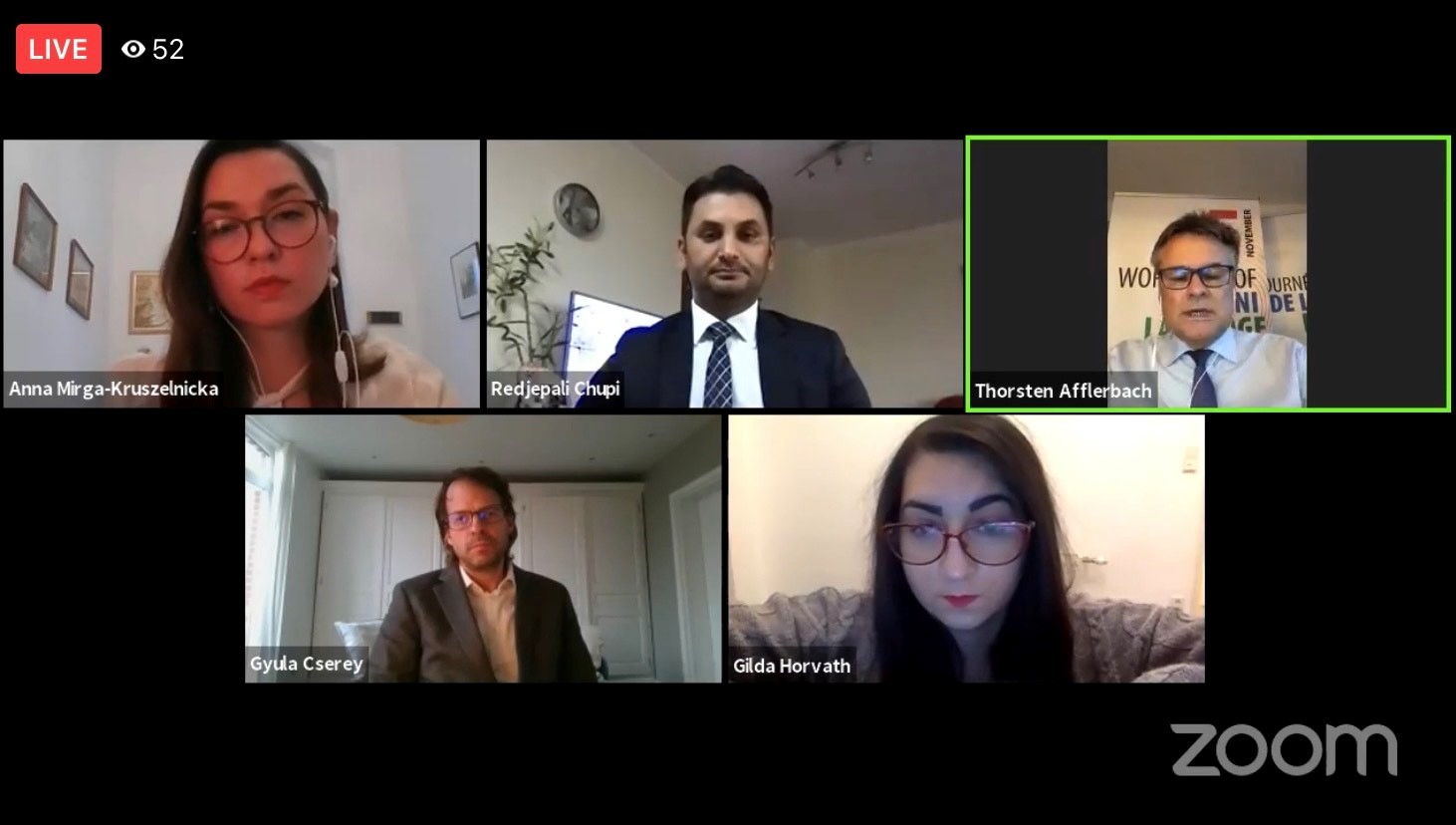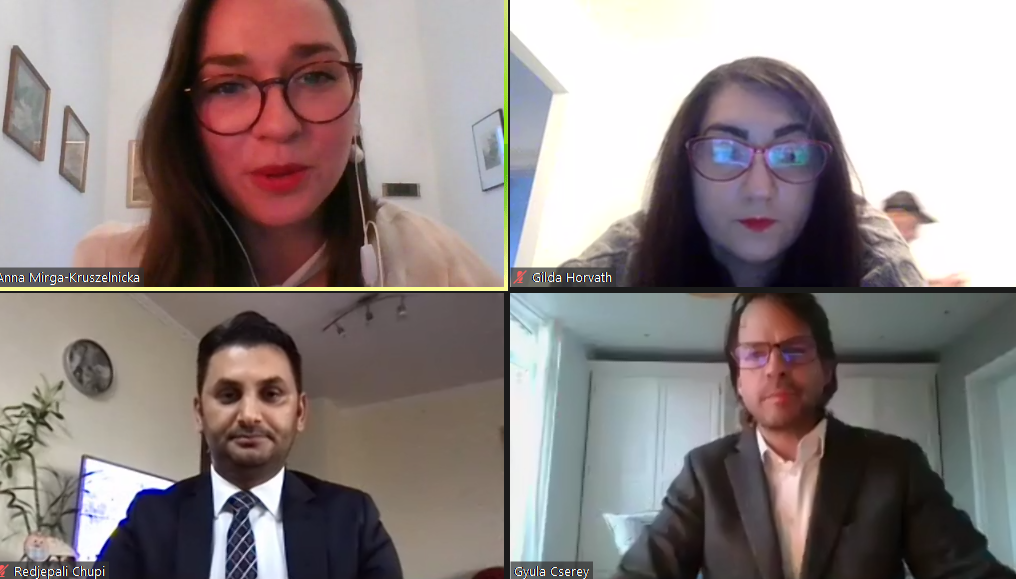The online symposium “Critical Pedagogy, Romani Emancipation and post-COVID Education”, organized by the European Roma Institute for Arts and Culture (ERIAC) and the Romani Studies Program at Central European University (RSP CEU) and held on November 25, 2020, sought to create a space for discourses on post-Covid educational systems and institutions for knowledge production, which deliver social justice and reconsider the strategies promoting the education of Roma. Critical pedagogy emancipates oppressed and marginalized groups through the formation of a critical consciousness, stated the organizers.
Redjepali Chupi, REF’s Co-Director, had a presentation within the conceptual framework “Institutional perspectives: Transformative education, social justice and the Roma in the post-COVID reality”, sharing the panel with representatives from the Council of Europe, DG for Education, Youth, Sports, and Culture of the European Commission and ERIAC. He presented the challenges facing Roma students with the commencement of state of emergency in many European countries, upon which education has turned to either online or remote set up. It necessitated flexibility of both pedagogical staff and students and specific resources to support distance learning.

Further, Chupi listed the impediments which Roma pupils of different educational level has been facing during the pandemic. For Roma families with children in early childhood education and care, the remote learning has not been available and guided education was non-existing. For families in primary education, much of the remote learning relied highly on parental assistance and guidance, as well as on regular communication with teachers. Regarding the secondary and tertiary education pupils, the lack of interactions with the teachers and the non-adjusted curriculum for online teaching were quite a trial.
One of the severe challenges mentioned in the feedback from the project beneficiaries of REF Emergency Response to COVID-19 Fund is the contested parental capacity and pedagogical knowledge in supporting the distance learning process of their children. 81.8% of grantees stated that this deficiency is severe, alongside with socioeconomic conditions and exclusion among the Roma, added REF’s Co-Director.
Among other identified strong challenges are students’ and parental psychological pressure, difficulty of learning content (through remote learning), difficulties in accessing smart devices, lack of internet access and technology, inadequate space to study, loss of contact with teachers and schools, poor quality curriculum and insufficiency of stationery necessary for learning.

Next, REF’s Co-Director declared that the Roma Education Fund has created an Emergency Fund and Action Plan to provide support to the continuation of education and learning in reaction to the impediments which Roma families encounter since the beginning of the pandemic.
Emergency activities, as well as materials and educational support, have been provided to Roma students and their families in Albania, Bosnia and Herzegovina, Bulgaria, Croatia, Hungary, Kosovo, Montenegro, North Macedonia, Romania, Serbia and Slovakia.
The Emergency Fund, together with amounts of project reallocations approved, operates with 680,371 EUR, with so far 445,508 EUR awarded in these countries in the period March – August 2020. In this six-month period, 3, 653 packages of tablets, internet, toys and education materials were distributed, over 4, 693 beneficiaries supported with mentoring and tutoring and more than 1,066 families have received humanitarian aid.
What was specifically highlighted in Chupi’s presentation is that mentoring and tutoring approaches of REF have been highly contributing to the increase of students’ confidence in the ability to perform in class and in managing interpersonal encounters which could otherwise deter a student’s upward educational mobility.

Another point in the speech, which emphasized vital and crucial moments for the success of REF’s models within the post-COVID-19 education, is the steadily built partnerships with a few ministries of education to sustain both scholarships in secondary and tertiary education and large-scale tutoring and mentoring programs.
REF’s presenter also accentuated on the necessity to map out the needs of various Roma communities in order to invent tailor-made and compatible approaches to education and employment. Specific policy introductions addressing remote education and racial equal directives are on a demand, Chupi underlined. Remote education policies shall be in response to the principles of equality, inclusivity and sensitivity to national minorities, added Chupi.
The short promotional video “Celebrating 15 Years of Roma Education Fund” was broadcast during the event. Watch the video here:

















